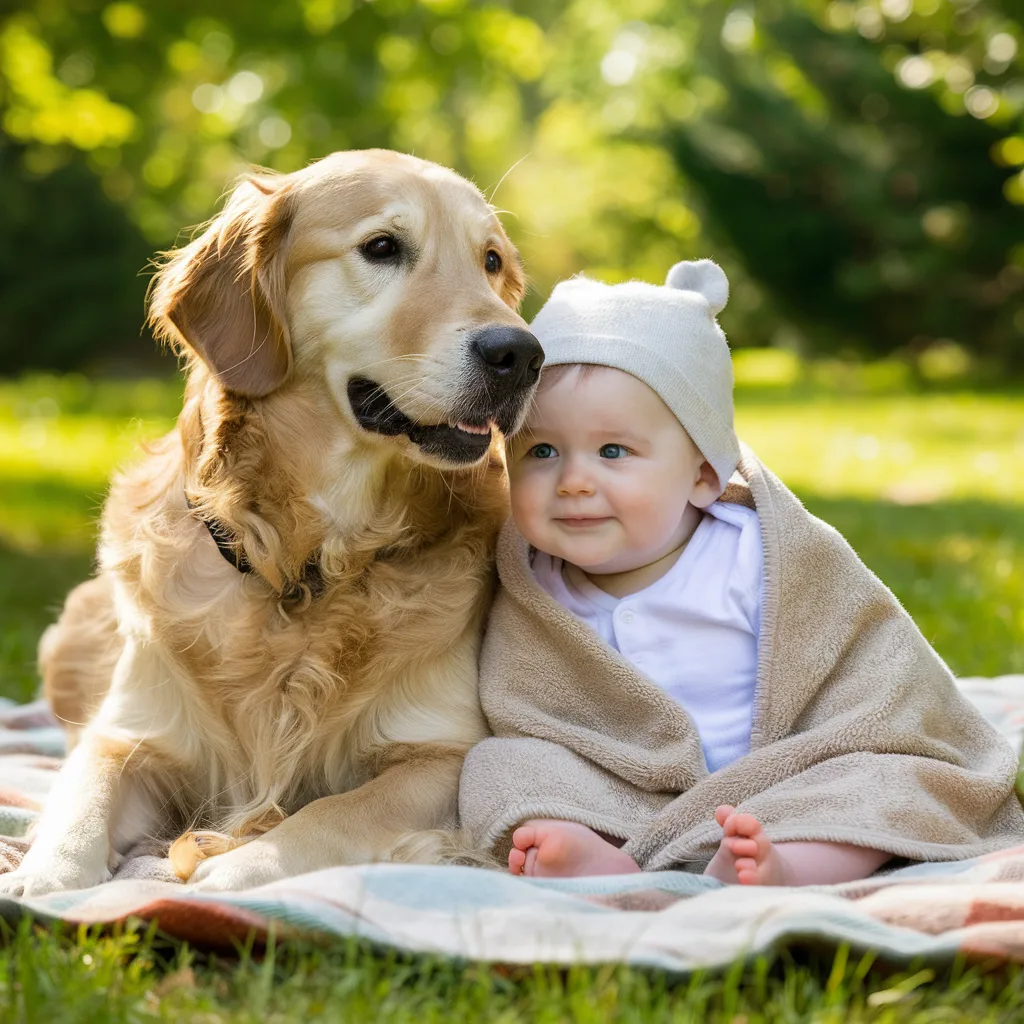Furry Friends: Dogs as Perfect Partners for Babies

When it comes to choosing the perfect family pet, dogs often top the list. They are loyal, affectionate, and can become cherished members of the family. But what about when you have a baby? Many parents wonder if it’s a good idea to introduce a dog into their home with a newborn or young child. The answer is a resounding yes! Dogs can be wonderful partners for babies, offering companionship, security, and a myriad of developmental benefits. Here’s why having a dog in the family is a fantastic idea when you have a baby.
Benefits of Having a Dog with a Baby
1. Companionship and Security
Dogs provide unwavering companionship and a sense of security. They can be a comforting presence for babies, helping them feel safe and loved. The bond between a dog and a baby can grow to be incredibly strong, with the dog often acting as a loyal guardian.
2. Emotional Development
Having a dog in the family can significantly aid in a child’s emotional development. Interacting with a dog teaches babies about empathy, kindness, and caring for another living being. These early lessons in compassion can have long-lasting effects on their social and emotional skills.
3. Reduced Allergies and Asthma
Studies have shown that children who grow up with pets are less likely to develop allergies and asthma. Early exposure to pet dander and microbes can help build a stronger immune system, making babies less susceptible to these common conditions.
4. Encouraging Physical Activity
Dogs need regular exercise, which encourages physical activity for the whole family. As babies grow into toddlers, they will enjoy playing with their furry friend, which can help develop motor skills and keep them active and healthy.
5. Teaching Responsibility
While babies are too young to take on the responsibility of caring for a dog, having a pet can still lay the groundwork for teaching responsibility. As children grow, they can take on age-appropriate tasks like feeding, walking, and grooming, learning the importance of caring for another living being.
Choosing the Right Dog for Your Family
When choosing a dog to join a household with a baby, it’s important to consider the dog’s temperament, size, and energy level. Some breeds are known for their gentle and patient nature, making them ideal companions for young children. Here are a few breeds that are often recommended for families with babies:
- Golden Retriever: Known for their friendly and tolerant nature, Golden Retrievers are gentle, patient, and great with children.
- Labrador Retriever: Labradors are loyal, affectionate, and have a calm demeanor, making them excellent family pets.
- Beagle: Beagles are curious, friendly, and good-natured. They are also small enough to be manageable around babies.
- Cavalier King Charles Spaniel: These dogs are known for their affectionate and gentle disposition, making them perfect for families with young children.
- Poodle: Poodles are intelligent, trainable, and hypoallergenic, making them a good choice for families with allergies.
Tips for Introducing a Dog to Your Baby
1. Gradual Introduction
Introduce your dog to the baby gradually. Allow the dog to sniff and observe the baby from a distance before allowing closer interactions. This helps the dog adjust to the new family member without feeling overwhelmed.
2. Supervised Interactions
Always supervise interactions between the dog and the baby, especially in the beginning. This ensures the safety of both the baby and the dog, and helps you guide their interactions positively.
3. Create Positive Associations
Reward your dog for calm and positive behavior around the baby. Use treats, praise, and petting to create a positive association with the baby’s presence.
4. Maintain Routine
Dogs thrive on routine, so try to maintain their regular schedule of feeding, walks, and playtime. This helps prevent your dog from feeling neglected and ensures they remain well-behaved and content.
5. Teach Gentle Interactions
As your baby grows and starts interacting with the dog, teach them to be gentle. Show them how to pet the dog softly and avoid pulling on ears or tails.
Conclusion
Having a dog as a partner for your baby can be a rewarding experience for the entire family. Dogs offer companionship, security, and numerous developmental benefits for young children. By choosing the right dog and taking the time to introduce them properly, you can foster a loving and harmonious relationship between your baby and their furry friend. Embrace the joy and unconditional love that dogs bring, and watch as your child grows up with a loyal and affectionate companion by their side.



